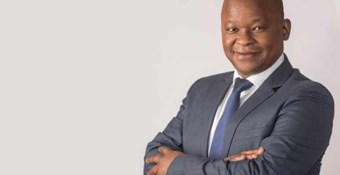South Africa
Parliament must 'step in' regarding PP─── 07:23 Mon, 15 Jul 2019

The ongoing spat involving Public Protector Busisiwe Mkhwebane and Public Enterprises Minister Pravin Gordhan strikes at the heart of South Africa’s constitutional order, and Parliament needs to 'act urgently to prevent further harm'.
This is according to the Council for the Advancement of the South African Constitution (Casac).
"In light of the ongoing spat involving the public protector, the President [Cyril Ramaphosa], and minister Pravin Gordhan regarding the powers, jurisdiction, functioning, and competence of the public protector, Casac calls on the Speaker of the National Assembly Thandi Modise to take steps to act in accordance with section 194 of the Constitution," the Casac council said in a statement.
Casac recognised that Gordhan, and indeed Ramaphosa, like all South Africans, was not above the law, but neither was Mkhwebane, "who we believe is abusing the powers granted to her as the public protector by her unrelenting pursuit of minister Gordhan", it said.
Casac recalled that the courts had found that Mkhwebane had acted in an irrational, and therefore unconstitutional, manner on a number of recent occasions, including:
- The ABSA matter where the court found that she had exceeded her powers and criticised her failure to explain her actions adequately;
- The South African Reserve Bank case where the court pronounced on her "superficial reasoning and erroneous findings" and found that she had breached the separation of powers by usurping the authority of Parliament; and
- The Vrede Dairy Project case (in which Casac was an applicant) where the court ruled that her report "points either to ineptitude or gross negligence in the execution of her duties".
Furthermore, the determination of Mkhwebane to pursue an issue that had been dealt with decisively before – the role of Gordhan in the establishment of the special investigating unit within the South African Revenue Service when he was its commissioner over a decade ago – demonstrated that she had acted in bad faith.
"As Judge [Robert] Nugent pointed out in his report on SARS last year, there is no good, clear, or reasonable basis for asserting that the unit was unlawfully established. It was a part of SARS’ perfectly sensible, reasonable, and lawful efforts to strengthen its institutional capacity to investigate significant cases of tax evasion," the council said.
"It is clear that the investigative unit, which inevitably and rightly had evidence-gathering capacity and equipment (notwithstanding whether it did or did not illegally use such techniques or equipment – a matter that is before the courts separately and which is not in any way germane to commissioner Gordhan (as he then was), got or was getting close to powerful, politically-connected people. That is why it, and those who sought to establish it, such as Pravin Gordan, became the subject of attack."
While Mkhwebane’s defenders would no doubt claim that all of this constituted "merely circumstantial" evidence, Casac's analysis was that it represented a pattern of conduct that was overtly partisan and that contrary to her oath of office and her public protestations, she was not in fact exercising her powers without fear or favour, but in service of certain factional and other vested interests.
"Hence, it appears to us that the spat between adv Mkhwebane and minister Gordhan goes far deeper than the two main protagonists. There are fundamental, underlying issues that go the very heart of South Africa’s constitutional democracy.
"Above all, we believe that it represents a struggle for control of the democratic state and for the resources that it has at its disposal. Under [former president] Jacob Zuma’s rule, those resources were systematically channeled towards illegitimate, private interests – as the Zondo Commission is revealing, chapter and verse, on a daily basis," Casac said.
"In other words, our view is that it is part of a desperate and despicable fight-back by those who have the most to lose by the reforms initiated by President Ramaphosa, and who benefited most from the disreputable period of institutional degradation widely known now as ‘state capture’.
"Hence, this is yet another fork in the road for modern South Africa. Our constitutional integrity is once again at stake and we must not underestimate the threat that is being posed."
Casac was established to raise its voice at critical moments such as this, and "we speak out now, united in our view that the office of the public protector is being abused as part of a political campaign whose real target is the anti-corruption reform efforts of President Ramaphosa’s administration".
Although Casac had a clear view on the matter, ultimately there was one body that had the authority to investigate the public protector. While the Constitutional Court was the ultimate forum for any constitutional dispute, and the courts had and apparently would continue to adjudicate on whether the public protector had acted in an irrational or otherwise unlawful fashion, it was Parliament that had the power to investigate Mkhwebane’s fitness to hold the position of public protector.
"We call upon Parliament to immediately institute proceedings under section 194 of the Constitution for the removal of adv Mkhwebane from office. This is not a party political, partisan issue. It is in the interests of all South Africans and our Constitution, that this harmful issue is resolved as quickly as possible. The council of Casac has deemed that this critical issue... threatens our constitutional order and democracy and we issue this statement as a collective," it said.
African News Agency (ANA)













